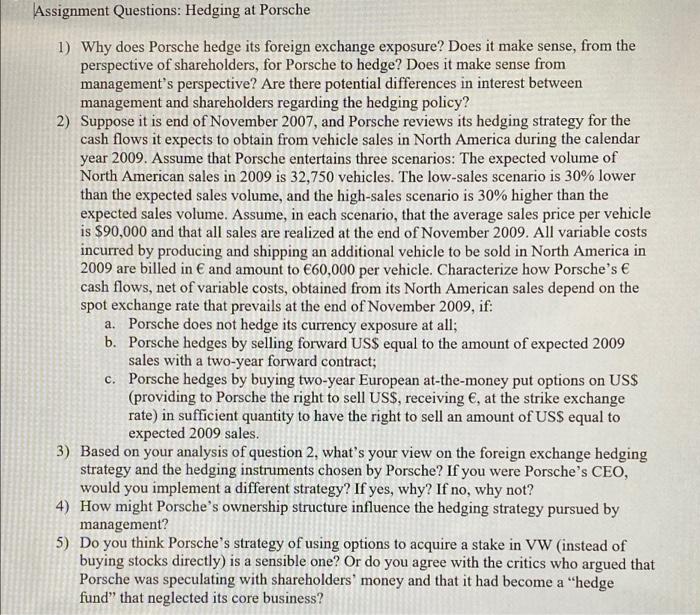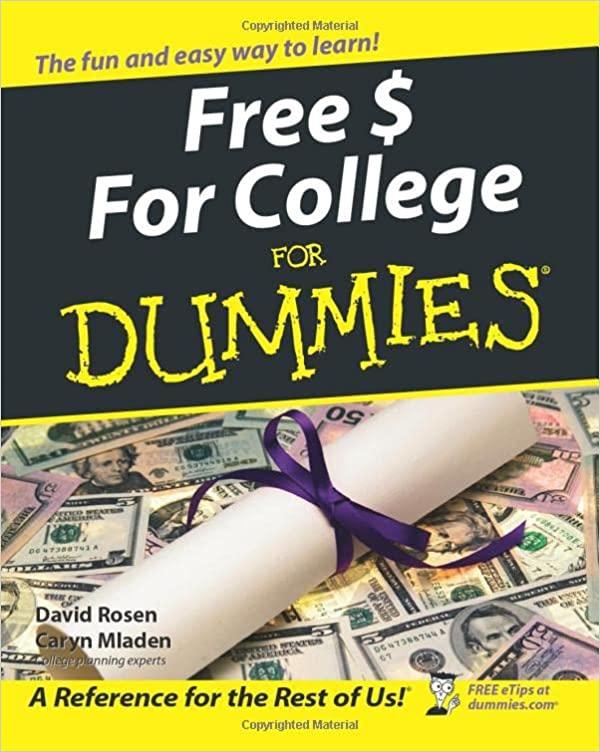Assignment Questions: Hedging at Porsche 1) Why does Porsche hedge its foreign exchange exposure? Does it make sense, from the perspective of shareholders, for Porsche to hedge? Does it make sense from management's perspective? Are there potential differences in interest between management and shareholders regarding the hedging policy? 2) Suppose it is end of November 2007, and Porsche reviews its hedging strategy for the cash flows it expects to obtain from vehicle sales in North America during the calendar year 2009. Assume that Porsche entertains three scenarios: The expected volume of North American sales in 2009 is 32,750 vehicles. The low-sales scenario is 30% lower than the expected sales volume, and the high-sales scenario is 30% higher than the expected sales volume. Assume, in each scenario, that the average sales price per vehicle is $90,000 and that all sales are realized at the end of November 2009. All variable costs incurred by producing and shipping an additional vehicle to be sold in North America in 2009 are billed in and amount to 60,000 per vehicle. Characterize how Porsche's cash flows, net of variable costs, obtained from its North American sales depend on the spot exchange rate that prevails at the end of November 2009, if: a. Porsche does not hedge its currency exposure at all; b. Porsche hedges by selling forward US$ equal to the amount of expected 2009 sales with a two-year forward contract; c. Porsche hedges by buying two-year European at-the-money put options on US$ (providing to Porsche the right to sell US$, receiving , at the strike exchange rate) in sufficient quantity to have the right to sell an amount of US$ equal to expected 2009 sales. 3) Based on your analysis of question 2, what's your view on the foreign exchange hedging strategy and the hedging instruments chosen by Porsche? If you were Porsche's CEO, would you implement a different strategy? If yes, why? If no, why not? 4) How might Porsche's ownership structure influence the hedging strategy pursued by management? 5) Do you think Porsche's strategy of using options to acquire a stake in VW (instead of buying stocks directly) is a sensible one? Or do you agree with the critics who argued that Porsche was speculating with shareholders' money and that it had become a "hedge fund that neglected its core business







